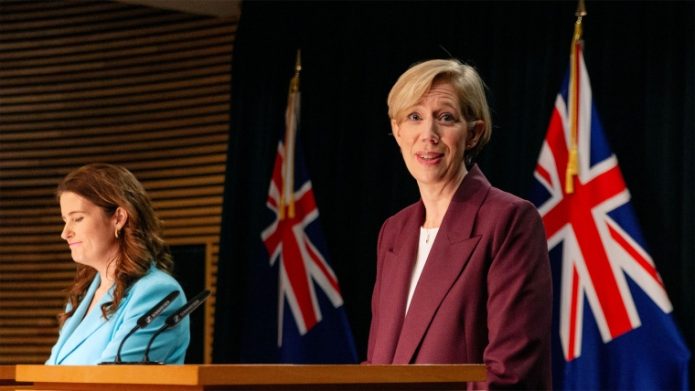PHOTO: AFP arrest one man in Melbourne’s Glen Iris. CREDIT: AUSTRALIAN FEDERAL POLICE
A transnational criminal organization faces allegations of laundering $228 million in illicit funds and tainted cryptocurrency through a money transfer business endorsed by a former government minister from the Howard administration. This enterprise is suspected of being clandestinely controlled by Chinese gangsters.
On Wednesday morning, law enforcement officers from the Australian Federal Police, operating under Operation Avarus-Nightwolf, conducted a coordinated operation against seven suspected members of the “Long River” syndicate in Melbourne. This syndicate, which operates across Australia, is accused of engaging in serious financial crimes, particularly money laundering.
Amusing snapshots of actual images real estate agents used to market properties
Authorities believe that the syndicate employed the Changjiang remittance network to launder funds. The Long River organization allegedly controlled this network, which was unwittingly used by members of the Chinese-Australian community to transfer billions of dollars overseas.
The significance of Operation Avarus-Nightwolf lies not only in the substantial sum of allegedly laundered funds but also in the audacious nature of the criminal organization’s actions. They set up an internationally licensed money transfer service, with numerous branches across Australia, and enlisted former Howard government immigration minister Gary Hardgrave to promote it in 2022.
Assistant Commissioner Stephen Dametto of the Federal Police’s Eastern Command stated that the “alleged syndicate was operating openly with polished storefronts across the country.” He noted that syndicate members had purchased false passports for $200,000 each to facilitate their escape from Australia if they suspected law enforcement attention.
Real Estate Agent accused of assaulting his model girlfriend
Over the course of a 14-month investigation, the Australian Federal Police has uncovered allegations that the Long River syndicate moved $228 million in illicit funds between 2020 and 2023. In addition to the arrests, authorities have also seized more than $50 million in luxury assets owned by some of the seven suspects, including a $10 million property in Melbourne’s eastern suburbs.
It’s important to clarify that there is no suggestion of Gary Hardgrave’s involvement in any criminal activities, nor is he a suspect in this case. He was engaged solely to promote the business and is not involved in its day-to-day operations.
Police allege that the Long River syndicate provided guidance to organized crime clients on how to conceal the movement of illicit funds using false invoices and other cover stories when transferring funds between China, Australia, and other destinations through the Changjiang remittance network.
Intelligence briefings dating from 2017 to 2021 reveal that several Changjiang-linked remittance businesses obtained licenses from AUSTRAC, Australia’s anti-money laundering agency, allowing them to move substantial sums of money as early as 2013.
Side Gig: The family earns an hourly income by offering their pool for rent
The recent arrests, along with the February operation codenamed Midas, which has restrained assets worth at least $200 million in New South Wales, highlight the extent of Australia’s money laundering problem. They underscore the challenges faced by law enforcement as they combat the influx of illicit funds from China, in violation of strict capital flight laws or generated through suspected fraud, corruption, or drug trafficking.
These arrests also raise questions about the role of the Chinese Communist Party in facilitating or ignoring the movement of dirty money from China to the West. There is a growing concern among Western officials regarding this issue.
A senior law enforcement official in New South Wales, who spoke about Chinese money laundering, mentioned a reluctance to openly discuss the true scale of the problem or the Chinese government’s apparent failure to address it. The issue is considered a significant international concern, impacting the cost of living and housing, and requiring increased resources and legislative changes.
Federal police and AUSTRAC intelligence reports describe how a network of Changjiang-linked money remitters moved hundreds of millions of dollars each year, including a significant amount of money in a short period.
Concerning Indicator of a Potential Rate Increase Announcement on Melbourne Cup Day
In late 2020, the Australian Criminal Intelligence Commission warned state and federal police agencies about Changjiang’s increased involvement in suspected money laundering activities.
This situation is not new, as a report from AUSTRAC in May 2017 indicated that suspected crime bosses and wealthy Chinese individuals were using a Changjiang-linked remittance business in Melbourne to clean and smuggle money they had earned through gambling at Australian casinos.
Changjiang positioned itself as a secure and reliable method for Australia’s Chinese community to transfer funds between China and Australia. In 2022, it enlisted Gary Hardgrave, who had previously served as the immigration minister under Prime Minister John Howard, to promote its services.

Three people of interest attend a Melbourne restaurant in this surveillence photo supplied by the Australian Federal Police.
The arrest operation on Wednesday was prompted, in part, by Changjiang’s decision to expand its storefronts in Sydney during the COVID-19 lockdown, drawing the attention of law enforcement agencies.
Authorities suspect that Changjiang was established by Chinese-Australian money launderers who mixed the proceeds of crime with legitimate fund transfers, amounting to at least $10 billion over three years. While many of these transfers were lawful, the syndicate allegedly provided a means for organized criminals to secretly move unlawfully obtained money, including proceeds from cyber scams, trafficking of illicit goods, and violent crimes.
Travis Kelce boldly invests in a $6 million property, undaunted by fan attention | WATCH
Police also allege that some of the money transferred by Changjiang was stolen in a $100 million cyber scam that was dismantled by the AFP and US Secret Service, leading to the arrest of seven individuals.
In February, investigators and forensic accountants from the federal police, involved in Operation Avarus-Nightwolf, disrupted an alleged Chinese-Australian money laundering organization, seizing properties and luxury assets worth at least $200 million. This operation also resulted in the arrest of nine suspects, including two Chinese-Australian gangsters in Sydney with a combined personal fortune estimated at more than $1 billion.

Federal police seize a luxury vehicle in Kew in connection with the investigation.CREDIT: AUSTRALIAN FEDERAL POLICE
Money remittance services, including well-known entities like Western Union and less-known companies such as Changjiang, are commonly used by migrant communities to transfer funds quickly and inexpensively to their families and businesses abroad.
The growth of the Australian remittance industry, coupled with the inflow of money from China and the increasing sophistication of money launderers, has raised concerns. Two senior law enforcement sources have revealed that AUSTRAC has been urging Treasury to strengthen the vetting and licensing of remittance providers, as there are fears that criminal organizations can easily establish money transfer businesses.
These arrests will increase pressure on the federal government to introduce long-delayed “Tranche 2” laws. These laws would extend the reporting obligations for suspected money laundering to professionals such as accountants, real estate agents, and lawyers, bringing them in line with banks and casinos.
SOURCE: SMH











